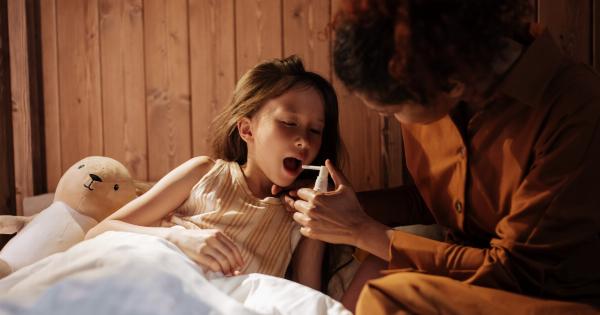Summer is all about sun, sand and fun time activities for kids. But it also brings with it some health hazards that parents should be aware of. One such condition is ear infections in children, which can be particularly common during summertime.
What are ear infections?
Ear infections occur when a bacterial or viral infection affects the middle ear, which is located behind the eardrum. In children, most ear infections occur in the space behind the eardrum, while in adults it can happen in the inner ear as well.
Ear infections are generally caused by respiratory infections, such as colds or flu. These infections can lead to inflammation and fluid buildup in the middle ear, causing pain, fever, and other symptoms.
Why are they common in summer?
Ear infections can be particularly common in summer for a few reasons. Firstly, summer often means more time spent in the water, whether it be the beach, pool, or lake.
This can lead to increased exposure to bacteria and other germs that can cause ear infections.
Secondly, during the summer months, many children are attending summer camps, which can lead to close contact with other children who may be carrying viruses and bacteria that can cause ear infections.
What are the symptoms of ear infections?
Ear infections in children can be difficult to detect, but there are a few symptoms to look out for, including:.
- Pain or discomfort in the ear
- Fever
- Difficulty sleeping
- Loss of appetite
- Irritability
- Drainage from the ear
How can they be prevented?
Preventing ear infections can be difficult, but there are a few things parents and caregivers can do to reduce the risk:.
- Keep children away from smoke
- Ensure children get the flu vaccine
- Encourage regular hand washing
- Avoid putting children to bed with a bottle
- Limit exposure to people who are sick
- Avoid prolonged exposure to water
What is the treatment for ear infections?
If your child is experiencing symptoms of an ear infection, it is important to take them to see a doctor. In some cases, the infection may go away on its own, but in other cases, antibiotics may be necessary to clear the infection.
Other treatments for ear infections may include pain relief medications, such as ibuprofen or acetaminophen, or ear drops to help clear the infection and reduce inflammation.
When to see a doctor?
If you suspect your child has an ear infection, it is important to take them to see a doctor. Some signs that your child may need medical attention include:.
- Fever over 102°F
- Severe pain or discomfort
- Bleeding or discharge from the ear
- Difficulty hearing or loss of balance
It is important to seek medical attention if your child is experiencing any of these symptoms, as they may indicate a more serious condition.
The bottom line
Ear infections are a common condition among young children, particularly during the summer months. While they can be difficult to prevent, there are steps that parents can take to reduce the risk of their child developing an ear infection.
Knowing the symptoms and when to seek medical attention can also help ensure that your child receives the proper treatment if they do develop an infection.



























